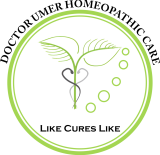A varicocele is a medical condition characterized by the enlargement of the veins within the scrotum—the loose pouch of skin that holds the testicles. Similar in nature to varicose veins found in the legs, a varicocele develops when blood flow within the spermatic cord veins becomes sluggish or backed up, leading to dilation and swelling.
Understanding Varicocele
Varicoceles are among the most common causes of male infertility, often leading to reduced sperm production and decreased sperm quality. However, not all varicoceles impair fertility. In some cases, varicoceles can cause testicular shrinkage (atrophy) or hinder the normal development of the testicles during puberty.
Most varicoceles develop gradually, usually during adolescence, and many are discovered incidentally during routine physical exams or fertility evaluations.
Symptoms of Varicocele
In many cases, varicoceles are asymptomatic—causing no noticeable signs or discomfort. However, when symptoms do appear, they may include:
-
A dull, aching, or dragging pain in the scrotum
-
Pain that intensifies with prolonged standing or physical activity
-
Symptoms that worsen throughout the day
-
Visible or palpable enlarged veins in the scrotum
-
A noticeable difference in testicle size
While not always harmful, varicoceles in adolescents or young adults should be evaluated due to their potential impact on future fertility.
When to Seek Medical Attention
You should consult a healthcare provider if you experience:
-
Pain or swelling in the scrotum
-
A noticeable mass in the scrotal area
-
Uneven testicle sizes
-
Difficulty conceiving
-
A newly discovered varicocele during youth
Other serious conditions can mimic varicocele symptoms, so timely evaluation is essential.
Causes of Varicocele
The spermatic cord is responsible for transporting blood to and from the testicles. A varicocele is believed to occur when the valves within these veins malfunction, leading to poor blood circulation and vein dilation.
Most varicoceles form on the left side due to anatomical differences in vein positioning, but they can affect both testicles in terms of fertility. The exact cause is unknown, though the condition typically develops during puberty.
Risk Factors
There are no clearly established risk factors for developing a varicocele. However:
-
Taller men may have a slightly increased risk
-
Overweight individuals might have a slightly reduced risk
More research is needed to fully understand these associations.
Complications Associated with Varicocele
If left untreated, varicoceles can lead to:
1. Testicular Atrophy (Shrinkage)
Damaged veins can increase pressure and expose the testicles to harmful toxins in the blood, causing the testicular tissue—especially the sperm-producing tubules—to shrink and soften.
2. Infertility
Varicoceles can increase the temperature around the testicles, negatively affecting sperm count, motility, and overall sperm function, thereby impairing fertility.
Lifestyle Management
Wearing a scrotal support or athletic supporter may help relieve pressure and discomfort caused by varicocele, especially during physical activity or long periods of standing.
Varicocele Treatment in Bangalore
Many varicoceles don’t require treatment. However, if the condition leads to pain, testicular atrophy, or infertility, medical intervention may be recommended. Surgical and non-surgical options are available, including:
-
Varicocelectomy (surgical removal or tying off of affected veins)
-
Percutaneous embolization (a non-surgical procedure to block blood flow to the affected vein)
Homeopathy for Varicocele: A Natural Approach
Homeopathic treatment offers a gentle, non-invasive, and non-surgical solution for varicocele. It focuses on curing the root cause rather than just suppressing symptoms. Homeopathy views each patient holistically and aims to strengthen the body’s natural healing mechanisms and immunity.
For individuals with an underlying immune deficiency, homeopathy can be especially effective in stimulating internal healing and restoring balance.
Common Homeopathic Remedies for Varicocele:
-
Nux Vomica
-
Fluoric Acid
-
Lycopodium
The choice of remedy is based on individual symptoms, underlying causes, and the person’s overall constitution. A professional homeopath can help select the most appropriate treatment plan tailored to the patient’s needs.
Conclusion
Varicocele is a common yet often unnoticed condition that can significantly affect male reproductive health. While many cases require no treatment, early diagnosis and appropriate management—be it conventional or homeopathic—can help prevent long-term complications and support fertility. If you’re experiencing symptoms or have concerns, consult a healthcare provider for accurate diagnosis and guidance.

